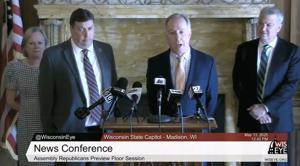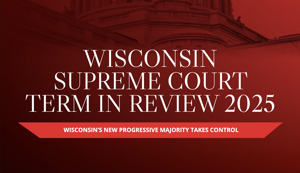(The Center Square) – A proposed bill seeking to address Wisconsin’s school bus driver shortage could soon be moving through the state Legislature.
If signed into law, the legislation would change how often bus drivers more than 70 years old would need to take their commercial driver’s license tests, from every two years to every four years.
According to bill co-author Rep. Shae Sortwell, R-Two Rivers, almost a quarter of school bus drivers are 65 years or older.
“The lack of school bus drivers is causing significant harm to our communities,” Sortwell said in a statement. “Wisconsin has lost about 20% (more than 3,000) of its school bus drivers in the last two decades. Less drivers can cause several problems for schools, such as delay or cancellation of classes, compromised safety from overcrowded buses, and parental uncertainty, which can affect their travel to employment.”
Sortwell said mandatory CDL tests every two years and the current medical review process are an “overregulation” that his legislation seeks to eliminate.
An “S” endorsement on a CDL signifies that the holder is authorized to operate a school bus and has completed the necessary training and qualifications to safely transport students.
Under the bill, if a driver’s “S” endorsement is canceled for medical reasons that require review board approval, the endorsement could be automatically reinstated if a licensed health care provider certifies that the driver is fit.
The endorsement would remain valid unless the medical review board later rules otherwise.
Furthermore, the bill would expand the pool of health care providers that can serve on the medical review board by allowing physician assistants and advanced practice nurses.
Current law requires medical review boards to consist only of licensed physicians or optometrists, to be appointed by the state secretary of transportation.
According to a February report by Wisconsin Policy Forum, while statewide school enrollment has decreased for years, the number of licensed school bus drivers has seen a steeper decline.
The number of public and private school students in Wisconsin per licensed school bus driver was about 59.5 in 2007 but rose to 68.5 in 2022, the report found.
Sortwell’s bill is seeking co-sponsors until Aug. 4, after which the legislation is expected to be formally introduced.
















